About 14 years ago a disability NGO asked me to help document the views of children in some inclusive schools they supported in East Africa. The project had been formally evaluated, but the evaluator declared it was impossible to gather children’s opinions about education. Their report featured no young voices. We therefore produced a video and book of photos entirely documenting the voices of primary, secondary and vocational learners on education and inclusion.
Thankfully, listening to learners’ views is more common these days. But there is still a perception that pre-primary learners are too young to tell us about their experiences or views. In EENET we believe no one is too young to have an opinion or be supported to express themselves. During projects funded by the Early Childhood Program of Open Society Foundations, we worked with early education settings in Armenia, Eswatini and Ukraine using child-to-child approaches to hear the voices of very young learners.
Our approach
Older learners work with a facilitator to discover action research participatory methods.
They then adapt and design activities they think will work well with young children in their context.
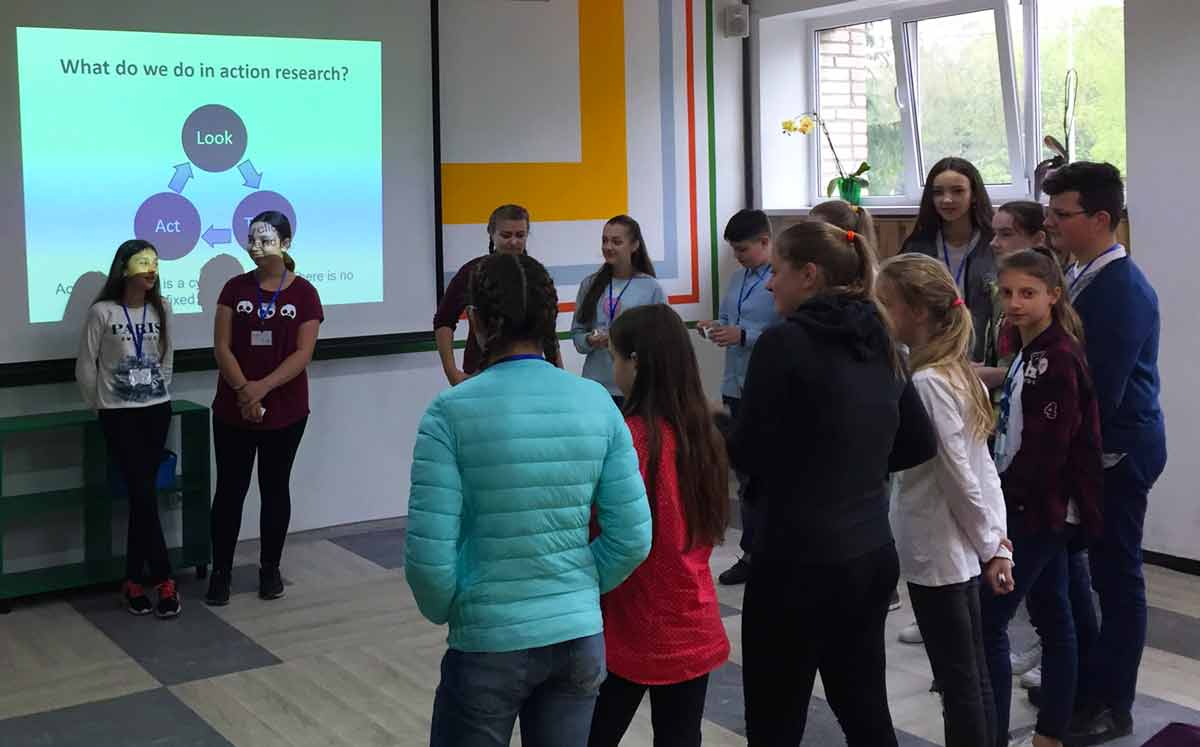
They often draw on their own memories of childhood and experiences with younger siblings to come up with activities that are more child-focused, creative, fun and play-based than adults might use.
This has included ball games, singing and dancing, drawing, and much more.
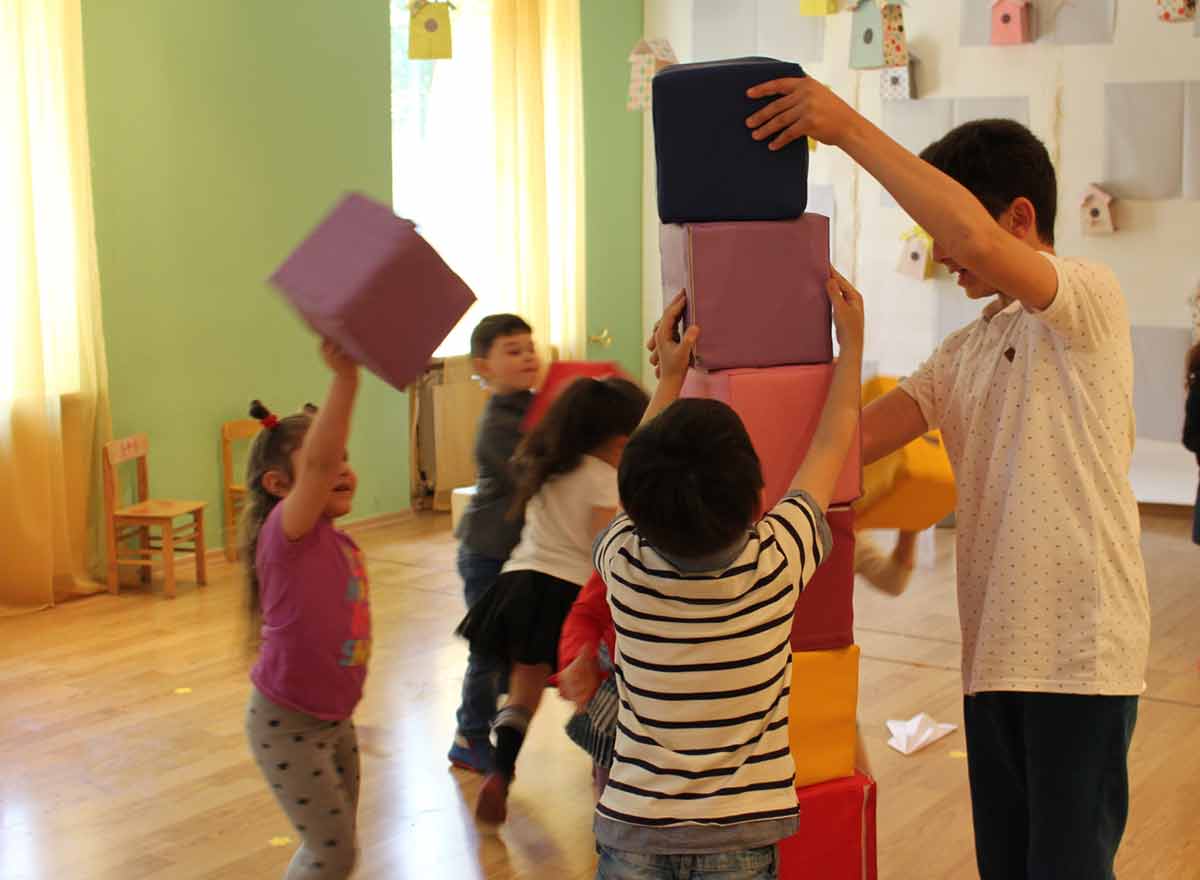
They also problem solve.
If their idea does not seem to be working, they quickly make changes to keep the young children happy and interested.
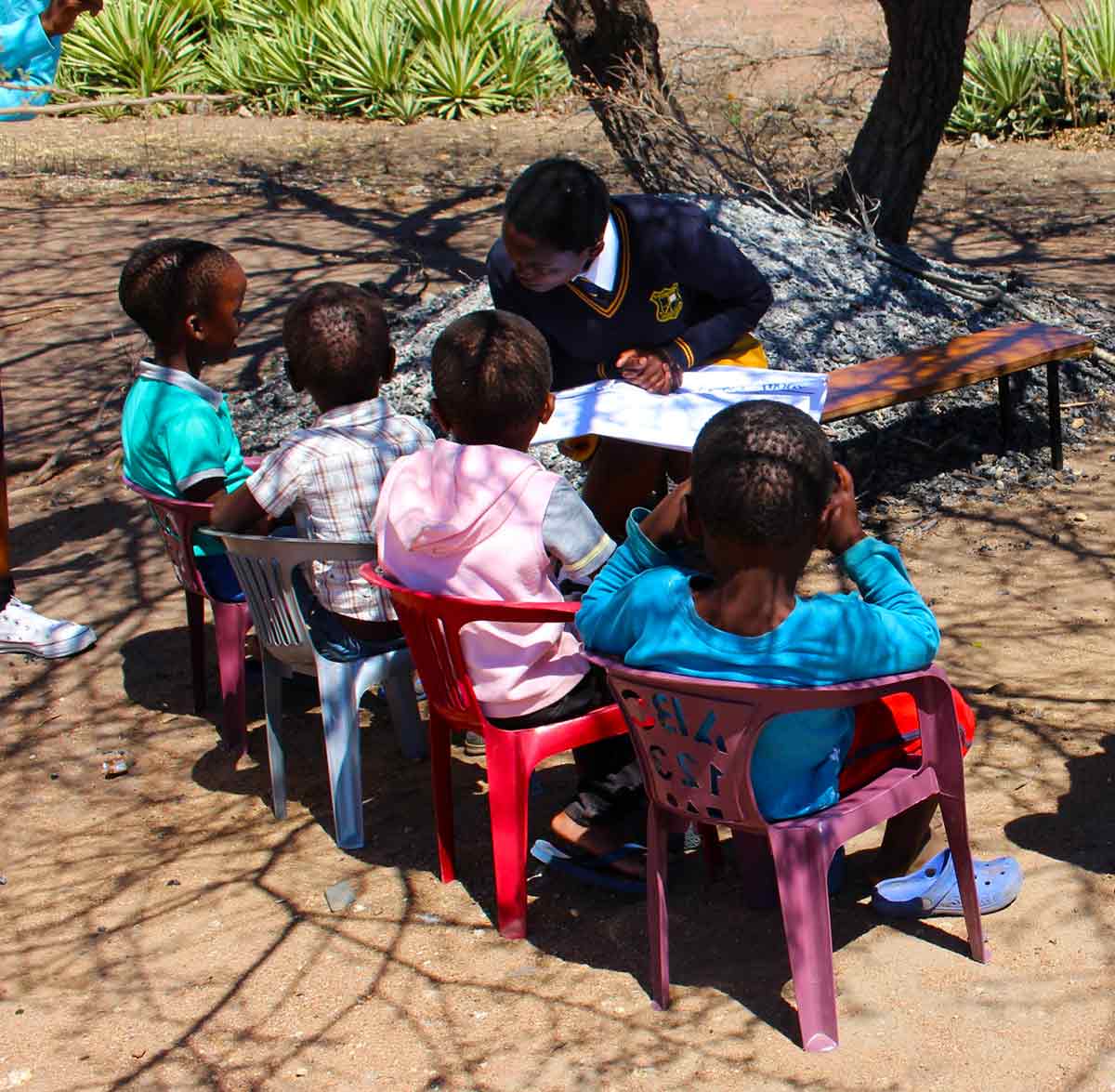
The older learners give presentations to explain to their teachers and the pre-school teachers what the young children said about school or education.
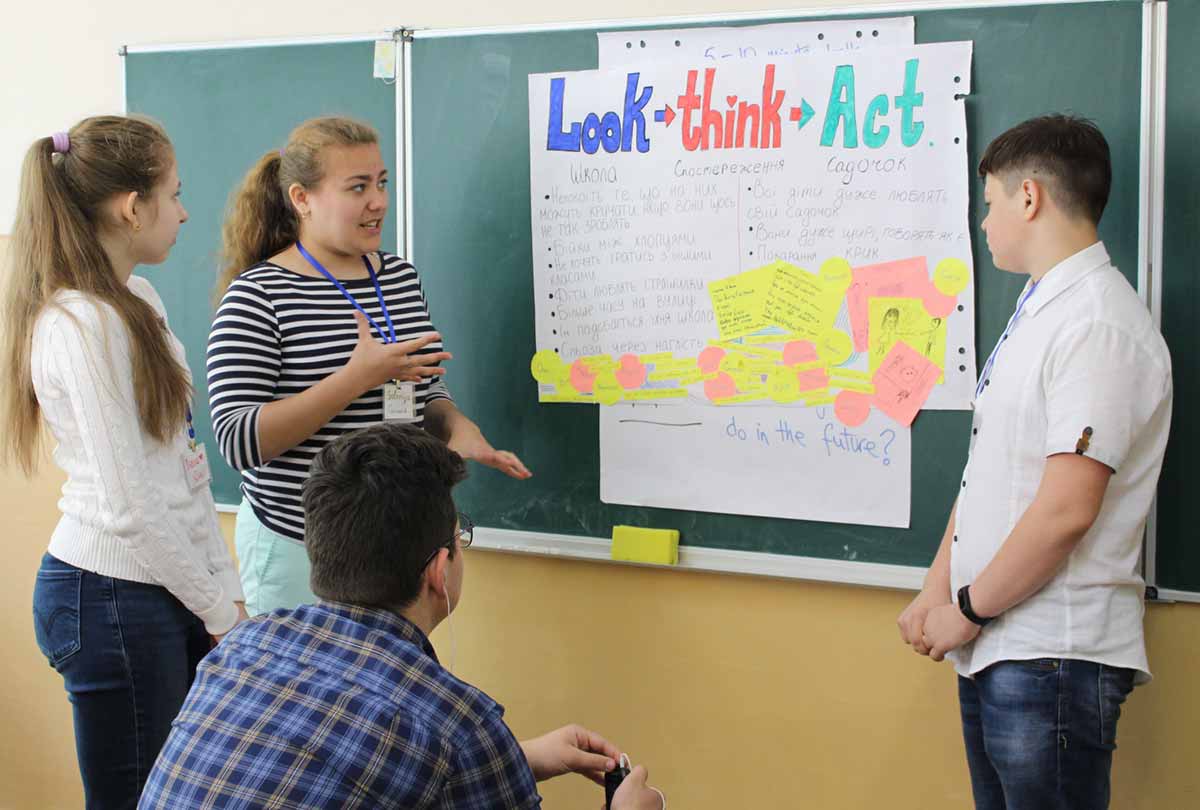
Sometimes the pre-schools and primary or secondary schools decide the exchanges between their learners are beneficial. They want to continue doing these mixed age group activities.
The activities help older learners develop new skills, and provide young learners with new experiences and sometimes more confidence to transition to the next school.
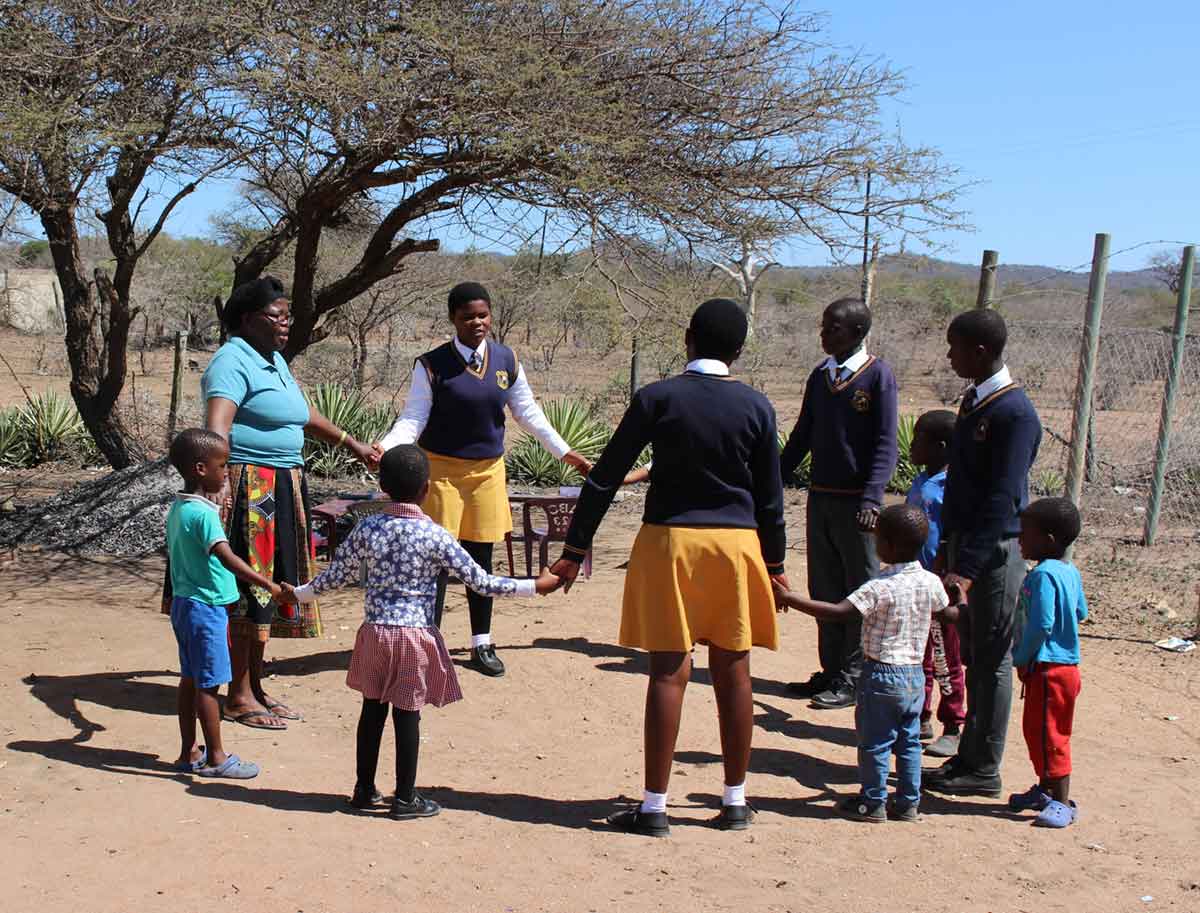
Contact: Ingrid is EENET’s Managing Director. Email: ingridlewis@eenet.org.uk
